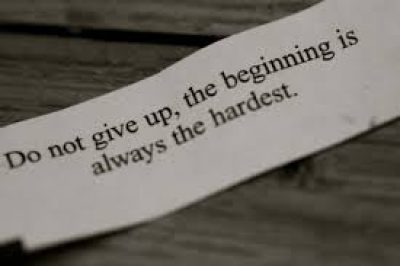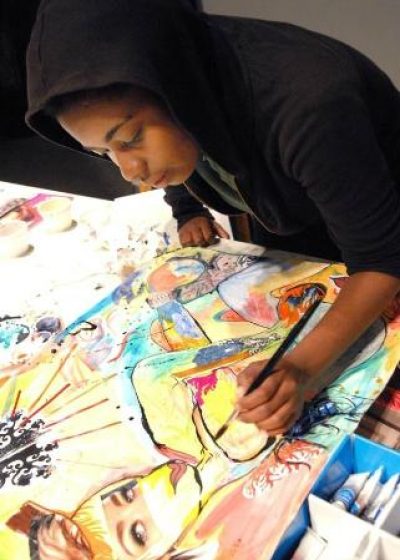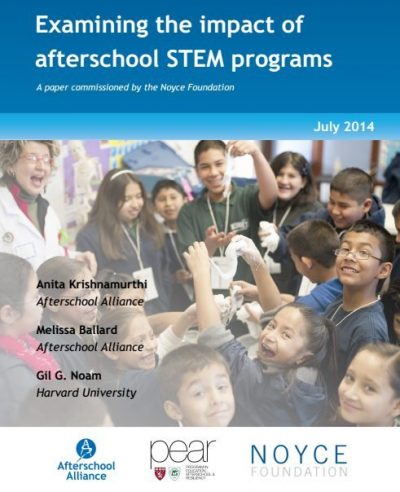Breakfast Club Blog

The BOOST Breakfast Club Blog is a curated space where bloggers from around the world contribute content on a continual basis about a variety of topics relevant to in and out-of-school time. The BOOST Breakfast Club blog is at the heart of an ongoing dialogue where expanded learning and education professionals share their personal thoughts and stories from the in and out-of-school time field. They also tell us what they ate for breakfast!
The BOOST Breakfast Club Blog is Brain Food for In and Out-of-School Time Leaders!
Interested in becoming a blogger? Email [email protected]
Click here to Register for a free account or click here to Login to your existing account.
Expanding Horizons: Global Learning in Out-of-School Time
Asia Society and BOOST Collaborative are partnering to create a series of blogs on global learning in out-of-school time. This month features Heather Loewecke from Asia Society. The impact of globalization is clear. The diversification of our neighborhoods and workplaces, technological advancements, transnational issues, and political conflicts are transforming the ways we must work and interact with individuals from vastly different backgrounds, countries, and cultures. However, research re...Read More
Youth Programming: Filling a Critical Void
Just recently, I started working for the juvenile justice system in the city government. Juvenile justice is a field of youth work that has always intrigued me with having done much academic research on it. At the same time, I knew that I would be opening myself up to experiences and situations that I would never have opened myself up to in any other field of youth work and not all of them were positive. I have seen youth exhibit behaviors and characteristics that I have never seen in any other ...Read More
Music and Arts Programs are NOT Frills
Music is a language that kindles the human spirit, sharpens the mind, fuels the body, and fills the heart. – Erik Jensen The arts are far closer to the core of education than are the more exalted subjects. – Abraham Maslow In this era of standards and accountability, arts are increasingly viewed as a frill and removed from school curriculum. Brain research suggests that arts can lay a foundation for academic and career success. Science, mathematics, and language require complex cognitive a...Read More
New paper: What are the impacts of afterschool STEM?
Today, many afterschool and summer programs include science, technology, engineering and math (STEM) as a standard part of their comprehensive programming. Afterschool providers recognize the importance of improved STEM education for their students and that hands-on, inquiry-driven STEM is in line with afterschool’s overall approach to education. Practitioners are able to directly see the impact afterschool STEM programs have on students—they see youth engaged in and excited about STEM activiti...Read More
STEM Doesn’t Have to be Pink
I was contemplating what to blog about today. My birthday is coming up so maybe I would write about traditions and celebrations. I knew for sure I would not be writing about the World Cup because besides the Google Doodles and posts from friends on Facebook, I really haven’t been keeping up. But then I was part of a conversation that got my goat. It was about attracting elementary school girls to STEM by offering pink lab coats and hard hats. Let me go ahead and say it. I am a fan of pink. I...Read More
Global Competency, Wha?
My daughter asked me if the 2014 Olympics were being held in Southern China. She spent most her childhood summers in Southern California, or SoCal, so I should not have been shocked when she thought Sochi was in southern China instead of Russia. Except that she is a 20 year old college student. What a small world we have…and how little of it our students seem to know. As a school teacher and mother to reasonably intelligent children, I like to believe I have instilled in them some understa...Read More
No Love Loss Between STEM & STEAM
As an Out-of-School-Time professional and a true Geek, I am amazed at the ongoing battle between STEM supporters and those who love the Arts. I hear it everywhere I go: “Our program practices STEAM, so that we don’t forget about the Arts!” “STEAM is just a bunch of hot air, we need to focus on true STEM.” “STEM is just tough to swallow, STEAM gets things moving!” I am confident that many of you have heard the arguments. I have overheard people describe S...Read More
Why Integrate Learning Standards?
As an afterschool and expanded learning professional, you have a lot going on in your day-to-day life. As you try to juggle the million little things that come up throughout your day, you’re also trying to pay attention to best practices in the field. You’ve probably heard about the importance of being “intentional” and “planful” in your program design, but what exactly does that mean? And why is it important? There has been a shift in the focus of our field o...Read More
A Modest Proposal: Taking Your Program to the Next Level
As Common Core gets underway, we have a great opportunity to take our programs to the next level. We can ensure that students aren’t just consumers of knowledge, but creators, critics and communicators of ideas! We have a chance to become more student-centered, to be guides-by-the side and facilitators of learning rather than adults who are in charge of what kids learn or what they experience. We can expand on youth development as a principle and practice by making 21st Century skills real...Read More
Pomp and Circumstance: Engaging Seniors Before Graduation
For many high schools, spring break is here. Or, at least, right around the corner. When students return to the classrooms, extracurricular activities, and their afterschool programs, thoughts may turn to planning lazy summer days with no responsibilities, homework, or teachers! This is especially challenging for the 2014 graduating class, which is extremely susceptible to senioritis this time of year. What kind of “medicine” can be provided to reduce the effects of this seemingly co...Read More
Kindergarten: First Time for Everything
Over the past few years there has been lots of chatter about Kindergarteners and Transitional Kindergarteners. The view of the first year of elementary school has changed drastically in the past 30 years let alone the inception. Back when Fredrick Froebel first started Kindergarten in 1837 it was seen as a way to nurture children like you would a garden, teachers providing a fertile ground based on play and practical skills so the young minds could grow and flourish. Since then Kindergarten has ...Read More























